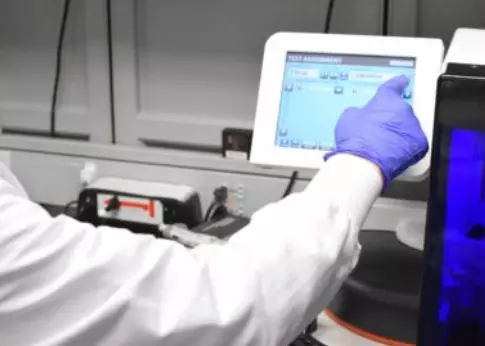Tackling India's Antibiotic Crisis: Strategies for Mitigating Resistance and Mortality

Hyderabad: India's healthcare system is affected by rampant antibiotic misuse, which drives up antibiotic resistance rates and mortality. Decisive measures and robust public health strategies are imperative to address this critical challenge, as immediate attention is demanded by its grave consequences.
Highlighting recent studies emphasizing the dire repercussions of antibiotic resistance, particularly in countries like India, where mortality rates linked to drug resistance are startlingly high, Laharika stated, "Antibiotic resistance isn't just a theoretical concern; it's a harsh reality with potentially fatal consequences. The misuse of these drugs fosters the development of resistant bacteria, rendering antibiotics ineffective precisely when they are most needed."
India, in recent years has seen serious outcomes due to mismanaged antibiotic treatments. Major tragic incidents involve patients receiving broad-spectrum antibiotics for a minor infection with lack of monitoring led to antibiotic resistance, resulting in the patient's untimely death. This highlights the critical need for careful antibiotic usage and dosage regulation to prevent such devastating consequences. Laharika Katamoni, a research scientist at BioCheck/DRG, one of the foremost biotechnology firms, underscores the firm's commitment to developing advanced therapeutic drug monitoring devices. These devices aid physicians in delivering efficient treatment decisions by accurately tracking antibiotic levels in patients, thus optimizing therapeutic outcomes while minimizing adverse effects. care providers to achieve optimal therapeutic outcomes while minimizing adverse effects.
Non-recommended Fixed Dose Combination antibiotics (FDC-AB) accounted for 7.5% of antibiotic usage in India, surpassing the global average, as per April 2023 Klein et al.'s reports. Moreover, 80 out of 119 FDC-AB in India lack US FDA approval, worsening antibiotic resistance posing public health risks and regulatory challenges, while escalating treatment failures, healthcare costs, and global health concerns. Laharika stresses proper antibiotic stewardship, highlighting the risks of unchecked administration and advocating for monitoring devices to mitigate risks and strengthen global endeavors against resistance.
Amidst the present-day concern over the emergence of New Delhi metallo-β-lactamase 1 (NDM-1), which confers resistance to vital antibiotics such as carbapenem and beta-lactam, the widespread misuse of antibiotics intensifies this challenge, fueling the rise of drug-resistent strains and severely constraining treatment options. Laharika emphasizes, "In response to these crucial challenges, our team is dedicated to developing antibiotic drug monitoring assays, including for vital antibiotics like ceftazidime, essential in combating resistance, notably associated with NDM-1. These assays offer precise dosage information, enabling tailored administration, optimizing treatment outcomes, and mitigating risks, thereby enhancing healthcare and managing antibiotic resistance effectively."
In conclusion Laharika underscores the critical importance of embracing such advanced monitoring devices in revolutionizing antibiotic treatments worldwide. These innovations enable informed dose adjustments, minimizing risks, and enhancing treatment effectiveness. Embracing such advancements is imperative in combating antibiotic resistance and ensuring patient safety, transforming antibiotic therapy for the 21st century healthcare landscape.

